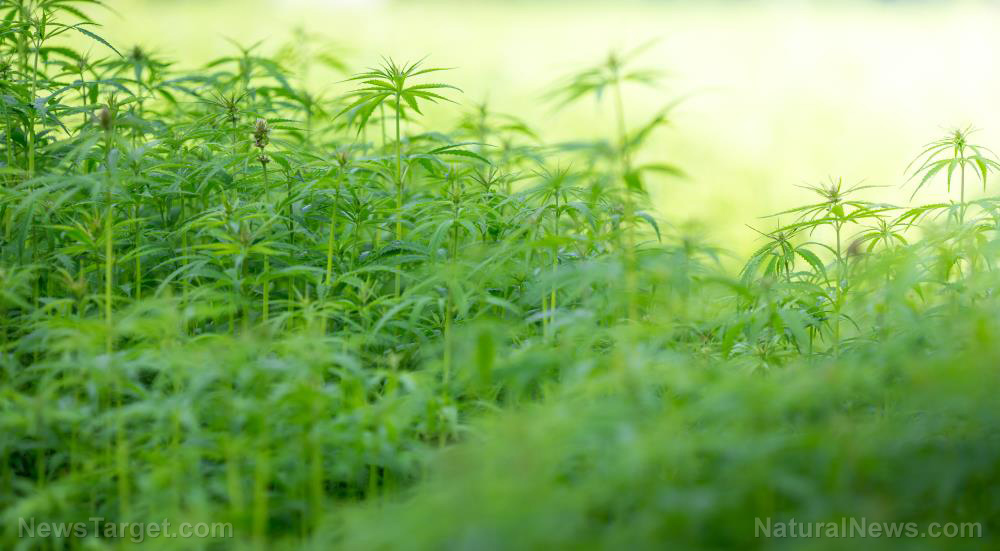Everything about hemp that Big Business doesn’t want you to know

Over the last few years, people have begun to question which opinion is correct.
There is an increasing amount of evidence that suggests that hemp may provide some therapeutic value to its users, but this information is not as well-known as it should be. Listed below are a few details that need to be discussed regarding hemp, its value in various industries, and why it has been heavily suppressed as a healing plant for years.
First: Hemp doesn’t get you high
Hemp is not marijuana, although they are both varieties of Cannabis sativa, one of the main subtypes of the cannabis plant. Think of them this way: Hemp is the mild-mannered Clark Kent cousin to the wilder, more extroverted marijuana.This is because hemp has negligible amounts of THC, the intoxicating substance found in marijuana. So, whereas marijuana can contain up to 30 percent THC, hemp contains less than 0.3 percent (per dry weight) of the same substance.
Hemp is also an excellent source of CBD, a non-intoxicating compound with many medical applications.
Its therapeutic value is so highly regarded in alternative medicine that Senate Majority Leader Mitch McConnell (R-KY) is guaranteeing that the 2018 Farm Bill will include a provision to legalize industrial hemp.
“It’s an extraordinary plant,” McConnell was noted in saying.
Second: Hemp was demonized in the 1900s to protect business interests
McConnell is part of an ever-growing population of people who are recognizing the truth that hemp is an industrial crop and not a party drug.Before the 1800s, hemp was ubiquitous, as it was used to make paper and textiles. After the invention of the cotton gin, hemp was placed on the back burner due to cotton being easier and cheaper to produce.
However, George Schlichten announced in 1917 that he had invented a machine that could easily harvest hemp and turn it into high-quality raw materials.
This was the final straw for Wall Street. W.R. Hearst, the owner of the largest newspaper company at the time, had interests in many acres of forests to create his paper. DuPont as well saw hemp as a potential threat — the pharmaceutical company had invested heavily in synthetic fibers and produced chemicals to process timber into paper.
A massive propaganda campaign ensued. A movie released in 1936 called “Reefer Madness” portrayed cannabis (in all its forms) as the most dangerous drug in the world. Hearst fabricated stories in his newspapers that this new drug “marijuana” was what African Americans and Mexicans overdosed on to rape and kill white women.
Added to that, in the early 1930s after Harry H. Anslinger was appointed to be the first commissioner of the Federal Bureau of Narcotics (what is now the DEA). Anslinger targeted minorities and believed Hearst’s outrageous stories. He proposed the Marijuana Tax Act to Congress and saw that it passed on August 2, 1937. This banned the production, sale, and use of marijuana. Industrial hemp was dragged down with it, despite there being a clear distinction between the two.
Authorities stated that hemp should be kept illegal because it was “too similar” to marijuana.
Third: Hemp is a miracle crop that plays a pivotal role in just about every industry
Aside from its notable medical benefits, here are other ways hemp can benefit society:- It shows potential in fighting world hunger — Hemp seeds contain the daily requirement for protein, and remains the healthiest meat alternative to date. It can be used to prevent protein-energy malnutrition. (Related: Hemp FAQ, hemp and health (press release).)
- It can protect against deforestation — Eliminating the need to cut down forests is the best way to protect them. If we can cultivate hemp, we can use it to make paper and other products traditionally made from wood.
- It can clean the environment — Hemp consumes four times as much carbon dioxide as trees do.
- It can replace plastics — Hemp stalks are excellent sources of fibrous materials that can be used for a variety of purposes, including the production of plastics and fiberglass.
No matter what your opinions on hemp are, it is good to recognize that it is a viable agricultural crop and should not be classified as a drug. Big business just doesn’t want people to know that hemp does wonders; that’s why they’re lobbying against it.


No comments:
Post a Comment